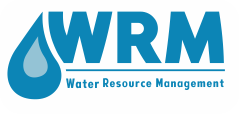The Revised Total Coliform Rule is the most important regulation for a public water system.
Why?
Immediate public health. Lead has been the hot topic in conversation lately, but bacteriological contamination is a more acute and immediate threat to public health. The health effects can be mild such as diarrhea and vomiting. They can also cause death.

Examples of Bacteria
What do we do about it?
The primary prevention method is chlorination. Water is chlorinated (except for very small systems) before it enters the distribution system for the very purpose of preventing bacteria from developing before it hits your tap.
Chlorination isn’t just a set-it-and-forget-it proposition however. Chlorine reacts with other elements in the water and breaks down, eventually to the point where it is no longer effective for bacteriological prevention. This is where testing, and complying with the Revised Total Coliform Rule comes in.
Areas of low water flow are especially susceptible to chlorine residuals dissipating. Water main dead ends are a common example. Targeting high risk areas is important.
Revised Total Coliform Rule
The Revised Total Coliform Rule sets the parameters for the following:
- Regular testing
- Testing following a positive coliform result
- Public notifications following a positive coliform result
Coliform bacteria is generally not pathogenic. It is used as an indicator of other harmful bacteria. Testing for individual bacteria is an expensive process, and not critical. The practice of using coliform bacteria as a marker predates any human alive; sometimes its best to go with what works!
This Rule is in place to protect consumers and provide confidence. It’s also used as a tool for Licensed Operators to act in an efficient and transparent manner.
No one likes bacteria
WRM is no exception. Our experienced staff is able to focus on all the critical components in coliform testing:
- Proactive steps to avoid positive coliform hits
- Confirming and correcting any system issues
- Performing the appropriate assessments
- Maintaining compliant sampling plans
- Submitting required paperwork to NJDEP
- Notifying the public
- Following up with the certified lab to ensure results are submitted to on-time
Public health is our chief concern, but coliform positive hits costs the system owner money. Failing to comply with NJDEP regulations costs the system owner money. These are needless costs. WRM has built its business on keeping systems running smooth and in compliance.
Contact us today if you want to know more on how WRM can help your system stay in compliance and provide clean, safe water to your customers.
Dan Beach 856-858-5750

You must be logged in to post a comment.